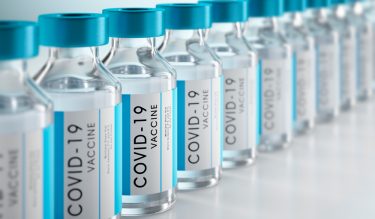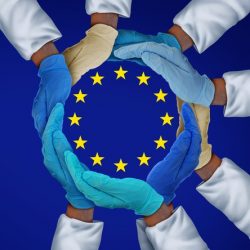Driving biopharma innovation post COVID-19
Posted: 18 May 2021 | Ahmed Bouzidi (ProductLife Group) | No comments yet
Ahmed Bouzidi, VP of Biotech Strategic Development at ProductLife Group, discusses the opportunities – and funding and regulatory challenges – facing small and mid-sized biopharma companies as they deliver innovation to the global market.


While the ongoing COVID-19 pandemic may not fundamentally alter existing market trends, it will undoubtedly magnify and accelerate them – whether in regard to remote working, e-commerce and process digitalisation or to the rise of the biopharmaceutical industry.
At first a frightening nightmare, with the rapid spread of the virus globally accompanied by significant morbidity and mortality, the COVID-19 pandemic quickly inspired great hope – through the unprecedented mobilisation of healthcare systems, including regulatory authorities. From initial identification of the virus, it took only a matter of weeks for the sequencing and the expression of the SARS-CoV-2 Spike (S) gene, just 10 months to develop the first vaccines and today, barely a year since the first COVID-19 case was reported in China, over 560 million doses have been administered in 152 countries and territories. Additionally, several different vaccines have now been developed at record speed, thanks to years of research into related viruses, technology platforms and billions of dollars in investment.
But the pandemic has also exposed some broader challenges and gaps in global capability and the biopharma sector is both suffering the consequences and in a position to be a potential solution.
Gaps in global capability
One of the challenges has been access to vaccines and treatments, compromised not by development or regulatory hurdles, but by uneven distribution of funding, geopolitical battles and sub-optimal supply chains. Accusations of vaccine hoarding, poor planning and gaps in supply, as well as scaremongering and misinformation, have prevented vaccines reaching all parts of the globe in the quantities and timescales needed. The result could be that new variants take hold and render the early vaccines less effective, increasing the risk of new waves and lockdowns.
The COVAX project, the vaccine pillar of the Gavi, Coalition for Epidemic Preparedness Innovations (CEPI) and World Health Organization (WHO)’s Access to COVID-19 Tools (ACT) Accelerator, must be implemented swiftly and efficiently to ensure that the poorest countries have access to the vaccines and that every population has an equal opportunity to be protected.


The next supply-related challenge relates to anticipation. A second generation of vaccines must be designed using more conserved structural proteins of the virus in addition to the S protein, to maximise efficacy against current and emerging variants of the coronavirus.
The biopharmaceutical industry, and innovative SMEs and mid-size companies in particular, have been centre stage in tackling COVID-19. These smaller and more modest-size biopharma companies have a number of great advantages, including being flexible, adaptable and more geared to innovation. They are also experiencing greater acceptance than they ever have previously by global populations. That is, confidence in more experimental/non-traditional products has soared during the pandemic, paving the way for biopharma SMEs to become major players in the global market.
Even back in 2017, about 65 percent of the drugs approved in the market were based on biotechnology, according to United Nations (UN) statistics and this trend will accelerate in the coming years. The huge demand for biopharmaceuticals will be facilitated by an accelerating focus on research and related investment, fanned by the COVID-19 pandemic. The ability of biopharmaceutical products to address previously untreatable conditions will fuel the introduction of innovative drugs to the market, bolstering the biopharmaceutical market over the next decade.
Favourable conditions for biologics market growth
Biopharmaceutical companies are actively involved in the development of innovative molecules that fulfil the unmet needs of patients. With an increasing number of companies in the late-stage development of their biologics, it is anticipated that the biologics market will witness substantial growth in the future. The soaring number of product approvals and increasing demand for targeted therapies, as well as the rise in the development of biosimilars, will contribute to this growth.
But the right conditions need to be aligned to realise the potential and currently some regional markets are more favourable than others for the ambitious biopharma company.
Tomorrow, the market will be in part driven by the emergence of new diseases triggering the need for effective vaccines and novel therapies. This in turn will drive increasing demand for faster approval processes, a transformed regulatory landscape and growth in emerging fields – such as specialty therapies, vaccines, orphan drugs or personalised medicines for some indications in the fields of cancer, chronic diseases and emerging infectious diseases. All of this will attract increasing attention from investors and big pharma.
This is where things become interesting – and political. For all that biopharma has drawn rising interest and regulators have eased their path to market, the funding and proactive support available for bringing drugs to market varies internationally. This will have a bearing on biopharma companies’ strategies going forward.
EU lagging in the biopharma revolution
The EU in particular has some work to do to create more conducive conditions in which biopharma innovators can thrive – certainly compared to the US and Asian markets. This is evident from the differing approach taken, by necessity, by German SME BioNTech, which had to partner with the US big pharma Pfizer to develop its vaccine, and Moderna in the US which was able to take its own product to market, thanks to the backing of substantial, risk-tolerant public financing. In China, optimum conditions and the ready available of generous funding in both Hong Kong and on the mainland has led to three vaccines being produced in the last 10 months, comparable with the US’s record.


The most notable innovation to come out of Europe during the pandemic has been the AstraZeneca/Oxford vaccine but, originating in the UK, even this success has happened outside the EU. If Europe wants to command a share of the biopharma revolution, the EU needs to address the current conservatism, sluggish timelines and regulatory complexity – not to mention the lack of adequate financial backing for smaller companies – which is preventing innovative SMEs from forging ahead with their developments and bringing them to market at speed.
Partnership with large pharma
In an ideal world, biopharma SMEs would be able to bring their own products to market, with the right support, retaining the benefits of those companies’ agility and maximising market competition, drug affordability and global access to a choice of treatments.
Another option is to enter into partnerships with large pharma – as the Oxford vaccine team did – thus combining the best of both worlds: innovation and speed with global contacts and supply chains, international regulatory and pharmacovigilance/safety experience and general market clout.
Certainly, pharmacovigilance will play an essential role in ensuring the safety of patients, especially as pharma branches out into more innovative treatments and biopharma SMEs will need help with this.
Emerging markets
Approval for newer biopharmaceutical products – not just branded but also biosimilar products (due to patent expiry of major pharmaceutical products) – will give rise to lucrative opportunities for market players, especially linked to low-cost alternatives to prohibitively expensive treatments for novel immuno-oncology products and the like.
New players, particularly from Asia, will play a pivotal role in providing such medicines at a more affordable cost. Although US players conduct over half the world’s pharma R&D today and hold the intellectual property rights on most new medicines, according to the Pharmaceutical Research and Manufacturers Association (PhRMA), the Asia-Pacific region’s market share is expected to grow at a steady pace of CAGR 8.34 per cent between 2020-2027, due to optimum conditions to support innovation as well as price reforms.


Asian players will also play an increasingly important role in addressing and overcoming drug shortages. In recent years, the prevalence of medicine shortages reported in most EU countries has increased exponentially. In France, medicine shortages numbered 1,450 in 2019, almost double those of the previous year and a staggering uplift from the 44 recorded a decade earlier. A recent survey of the European Association of Hospitals Pharmacists (EAHP) pointed to the rising shortages of oncology medicines, with 47 percent of respondents stating that oncology products are among the medicines most commonly in shortage (up from 39 per cent in 2018).
Final thoughts
Developing a product development strategy that takes into account timely access to funding and the need to fulfil regulatory obligations is a challenge that biopharma innovators will struggle to meet alone. Increasingly, innovators are working in closer partnership with suppliers to fast-track delivery of safe and effective treatments at an affordable and sustainable price point.
About the author
Ahmed Bouzidi is Vice President of Biotech Strategic Development at ProductLife Group (PLG). He has been at the forefront of the biopharma industry for more than 30 years, in three continents. He is a Senior Associate of the Royal Society of Medicines and has previously been President of the European Biopharmaceutical Enterprises (EBE) and a board member of Vaccines Europe (VE). Ahmed is contactable at [email protected].
Related topics
Biologics, Biopharmaceuticals, Drug Development, Drug Markets, Immunisation, Regulation & Legislation, Research & Development (R&D), Therapeutics, Vaccine Technology, Vaccines, Viruses
Related organisations
AstraZeneca, BioNTech, Coalition for Epidemic Preparedness Innovations (CEPI), European Association of Hospitals Pharmacists (EAHP), GAVI-the Vaccine Alliance, Moderna, Pfizer, Pharmaceutical Research and Manufacturers Association (PhRMA), United Nations (UN), World Health Organization (WHO)








